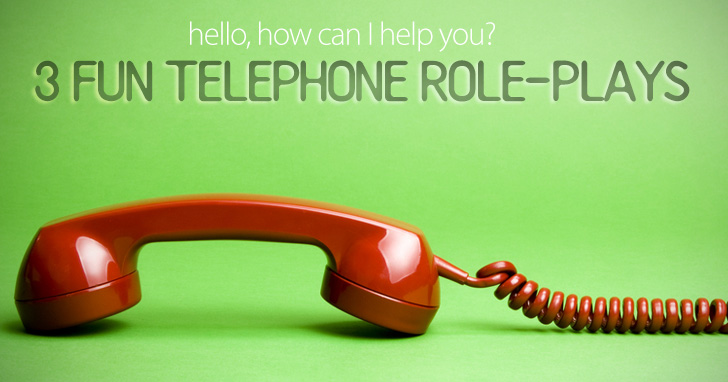
However, if instructors do take the time to prepare, the benefits can far outweigh the effort. These guidelines point to some of the drawbacks to using role-play, namely the amount of time necessary to properly prepare for the activity and the amount of knowledge one needs to have about both the content and the pedagogy (see House et. Best practices include the instructor thinking deeply about the learning goals of the role-play and choosing a case that best reaches those goals ensuring both the instructor and students are adequately prepared with case materials and familiar with the pedagogy and allowing for sufficient and appropriate feedback and debriefing of the entire exercise (Rao & Stupans, 2012: 432-33). The authors also surveyed the literature to collect best practices across all types of role-plays.

Each of these categories focus on a different learning domain, though all overlap to some degree. This type of role-play lets students apply all their skills in a realistic, yet safe setting. ‘Almost Real Live’ is a role-play “as close to the real experience as is possible” (431).

‘Acting’ role-plays allow students to practice newly-developed skills by simulating a scenario where that skill may be required. Rao & Stupans (2012) have created a useful typology for organizing the various role-play activities that are used in higher education: ‘Role-Switch,’ ‘Acting,’ and ‘Almost Real Life.’ ‘Role-Switch’ requires the student to take on the role of another agent to understand the actions and motivations of someone else. Not only does it increase student engagement, it increases knowledge retention. It can enhance second language learning (Livingstone, 1983) and reduce racial prejudice (McGregor, 1993). Using role-plays have been shown to better prepare student teachers and construction managers (Bhattacharjee, 2014). Aspegren’s literature review (1999) on how medical student best learn communication skills revealed that experiential training produced much better results than simple one-way instruction. Though role-play has traditionally been used in educational settings with an emphasis on the social dynamic of learning and fostering collaboration among students (Joyce & Weil, 2000), researchers have found role-play useful in getting students to better grasp practical cognitive skills as well (Shapiro & Leopold, 2012). This pedagogical tool has been used in various fields, from medicine to law, from business to psychology (Westrup & Planander, 2013). “to get students to apply their knowledge to a given problem, to reflect on issues and the views of others, to illustrate the relevance of theoretical ideas by placing them in a real-world context, and to illustrate the complexity of decision-making.” 7) summarize the benefits of using role-play pedagogy: Finally, using role-play as a training tool helps students change behaviors and use best practices in real-world settings (Beard, et. When students take the skills they have learned in theory and put them in practice, this creates a deeper cognitive link to the material, making it easier for students to learn (McEwen, et.

This can lead to more self-reflection and awareness on the part of the student (Westrup & Planander, 2013 Sogunro, 2004). By making students take on the role of another person, they practice empathy and perspective taking. Role-play pedagogy has been shown to be effective in reaching learning outcomes in three major learning domains: affective, cognitive, and behavioral (Maier, 2002 Rao & Stupans, 2012).

Research on role-play’s effectiveness and best practices exists as far back as the 1970s recently however, role-play has been touted as a tool better suited for the needs of today’s college student than more traditional teaching methods (see Rosa, 2012, and Bobbit et. The guidelines for the role-play are usually modeled on realistic criteria so the students can get as close to “the real thing” as possible. Essentially, it is the practice of having students take on specific roles - usually ones in which they are not familiar - and act them out in a case-based scenario for the purpose of learning course content or understanding “complex or ambiguous concepts” (Sogunro, 2004: 367). Role-play is a pedagogy that been used in a wide variety of contexts and content areas (Rao & Stupans, 2012).


 0 kommentar(er)
0 kommentar(er)
